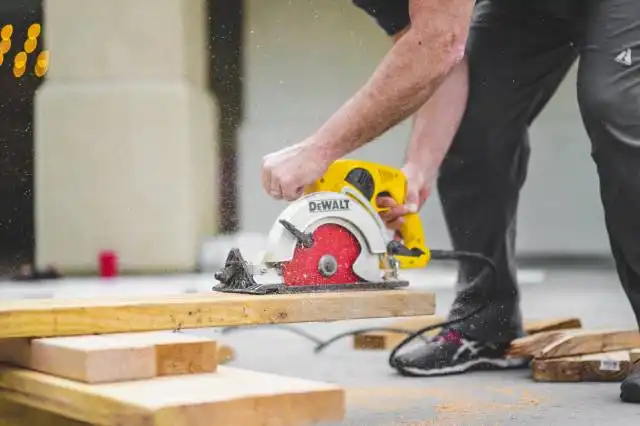Start a Headstone Business
Crafting Tributes in Stone: Unveiling the Untapped Potential of the Headstone Business
| Updated


HEADSTONE BUSINESS
Stepping into the headstone business is like becoming a silent, compassionate participant in people’s most vulnerable moments. This enterprise revolves around crafting and selling stone grave markers, a lucrative business since commemorating loved ones is a timeless tradition. Your job will be to guide the grieving heart towards designing a perfect tribute, melding their memories and sentiments into stone. It's a convergence of art, empathy, and commerce, frequently overlooked by the entrepreneurial eye but filled with potential.
Jump to Business Plan
RELATED BUSINESS IDEAS
Browse ALL Construction & Real Estate Business Ideas
Discover Your Perfect Domain
Unlock the door to your online success with our hand-picked selection of premium domain names. Whether you're starting a new venture or rebranding an existing one, the right domain can set the tone for your digital presence. Browse through our curated list, each with its unique potential to enhance your brand's visibility and credibility.
HEADSTONE MINI BUSINESS PLAN
This a quick reality check to help you identify the strengths and weaknesses of your business concept before you dive in.
Expected Percent Margin:
- Gross Margin: 60-70%
- Net Profit Margin: 20-30%
Earnings Expectations:
- Daily Earnings: $300 - $700
- Weekly Earnings: $2,100 - $4,900
- Monthly Earnings: $9,000 - $21,000
- Annual Earnings: $108,000 - $252,000
Actions to Hit Those Numbers:
Inventory Management:
- Initial Investment: At least $30,000-$60,000 for diverse, quality inventory of granite, marble, bronze.
- Supplier Relations: Establish strong connections with at least 3-5 suppliers.
Marketing and Customer Acquisition:
- Digital Presence: Invest in an easy-to-navigate website that displays your products.
- SEO Tactics: Implement SEO techniques to ensure your website ranks high in related searches.
- Local Advertising: Allocate at least $1,000 per month for local newspaper ads.
Sales and Customer Experience:
- Customer Consultations: Provide compassionate customer consultations to assist in the decision-making process.
- Customization: Offer custom engraving or design services to differentiate yourself.
Cost Control:
- Shop Location: Opt for a location that allows you to keep rent/mortgage under 10% of monthly sales.
- Operational Expenses: budget around $500 - $800 per month for utilities, tools, and general maintenance.
Business Operations:
- Open Hours: Open at least 5 days a week, 8 hours a day.
- Transaction Volume: Aim for 3-5 transactions per week at an average sale price of $2,000-$4,000.
These are generalized estimations and can vary depending on location, competition, economic conditions, and individual business strategies. Always consult with a financial advisor for personalized advice.
NOT WHAT YOU HAD IN MIND? Here are more ideas



Browse ALL Construction & Real Estate Business Ideas
Grab Your Business Website Name
Before you get caught up in the whirlwind of setting up your business, invest in a domain name. It's a small but significant step that lays the foundation for your brand and makes it easier for customers to find and trust you. Just like you wouldn't build a house without securing the land first, don't build a business without securing your domain name.
"Why? Can't that wait?" Here's why it shouldn't
Step 1: Determine if a Headstone Business is Right for You
Before starting a headstone business, it is important to understand the costs associated with starting and running the business. A breakdown of startup expenses should include the cost of the equipment and materials needed to produce the headstones, such as the stone, engraving tools, and other supplies. Additionally, the cost of any licenses or permits needed to operate the business should be taken into account. It is also important to consider the ongoing expenses associated with running the business, such as the cost of renting a workspace, purchasing additional supplies, and paying employees. Finally, it is important to have a good understanding of the ways to make money in the headstone business. This could include selling headstones directly to customers, selling to funeral homes, or providing services such as engraving or installation.
Step 2: Name the Business Once the decision to start a headstone business has been made, the next step is to name the business. When choosing a name, it is important to make sure it is memorable, easy to pronounce, and easy to spell. Additionally, the name should be unique and not too similar to other businesses in the same industry. It is also important to make sure the name is not already trademarked or copyrighted. Additionally, it is important to consider the potential for a website or social media accounts associated with the business, and make sure the name is available for use in those contexts. Finally, it is important to make sure the name is appropriate for the business and conveys the right message to potential customers.
Step 2: Name the Business
When choosing a name for a headstone business, it is important to consider the type of business and the target audience. For example, if the business focuses on traditional headstones, a name like “Classic Memorials” might be appropriate. On the other hand, if the business specializes in unique and creative headstones, a name like “Memorial Artistry” might be more fitting. Additionally, it is important to make sure the name is not already taken or trademarked by another business. A quick search of the United States Patent and Trademark Office website can help determine if the name is available.
Register the Business
Once a name has been chosen, the business must be registered with the local government. This typically involves filing paperwork with the Secretary of State or other local government agency. Depending on the state, the business may also need to register with the Internal Revenue Service (IRS) and obtain a federal tax identification number. Additionally, the business may need to register with the state’s Department of Revenue to collect and pay sales tax.
Create a Logo
Creating a logo for the business is an important step in establishing a professional brand. A logo should be simple and memorable, and it should reflect the type of business. For example, a logo for a traditional headstone business might feature a classic font and a simple image, such as a cross or a dove. A logo for a creative headstone business might feature a more modern font and a more abstract image, such as a tree or a mountain.
Design a Website
Having an online presence is essential for any business, and a website is a great way to showcase the products and services a headstone business offers. The website should include a description of the business, a portfolio of past work, and contact information. Additionally, the website should be optimized for search engines so that potential customers can easily find the business.
Step 3: Obtain Necessary Licenses and Permits
In Step 3 of starting a headstone business, it is important to research local regulations and obtain the necessary licenses and permits. Depending on the state, county, and city, there may be different regulations that need to be followed. It is important to research the local regulations to ensure that the business is compliant with all laws. Additionally, the business may need to obtain certain licenses and permits to operate legally. For example, a business may need to obtain a business license, a sales tax permit, and a zoning permit. It is important to research the local regulations to ensure that the business is compliant with all laws and to obtain the necessary licenses and permits.
Research Local Regulations
When starting a headstone business, it is important to research local regulations to ensure that the business is compliant with all laws. This includes researching the local zoning laws, tax laws, and other regulations that may apply to the business. Additionally, it is important to research any restrictions or limitations that may be placed on the business. For example, some cities may have restrictions on the size of headstones that can be sold or the types of materials that can be used. It is important to research the local regulations to ensure that the business is compliant with all laws.
Obtain Necessary Licenses and Permits
In addition to researching local regulations, it is important to obtain the necessary licenses and permits to operate legally. Depending on the state, county, and city, there may be different licenses and permits that need to be obtained. For example, a business may need to obtain a business license, a sales tax permit, and a zoning permit. Additionally, the business may need to obtain a license to sell headstones or a permit to install headstones. It is important to research the local regulations to ensure that the business is compliant with all laws and to obtain the necessary licenses and permits.
Step 4: Find a Supplier
Researching suppliers is an important step in starting a headstone business. It is important to find a reliable supplier that can provide quality materials and services at a reasonable price. There are many suppliers available, so it is important to do your research and compare prices and services. Consider factors such as delivery times, customer service, and product quality when selecting a supplier. It is also important to read reviews and ask for references from other businesses that have used the supplier.
Negotiating prices is also important when selecting a supplier. Many suppliers offer discounts for bulk orders, so it is important to negotiate the best price possible. It is also important to ask about any additional fees or charges that may be associated with the order. Be sure to get everything in writing and read the fine print to ensure that there are no hidden fees or charges. It is also important to ask about payment terms and delivery times to ensure that the supplier can meet your needs.
Step 5: Create a Business Plan
Outline Business Goals
Creating a business plan is an important step in starting a headstone business. The business plan should include specific goals for the business and a timeline for achieving those goals. It should also include a breakdown of the startup costs and ongoing expenses. Additionally, the business plan should include a marketing plan and a plan for how the business will make money.
Establish a Budget
When creating a budget for the headstone business, it is important to consider the costs associated with the business. This includes the cost of materials, labor, and any other expenses associated with running the business. Additionally, it is important to consider the cost of marketing and advertising, as well as any other costs associated with running the business.
Research the Market
Before starting a headstone business, it is important to research the market. This includes researching the competition and understanding the needs of the customers. Additionally, it is important to research the types of headstones that are available and the prices that customers are willing to pay. This research will help the business owner create a competitive pricing structure and understand the needs of the customers.
Step 6: Set Up a Business Location
Consider Home-Based Business
If you are looking to start a headstone business, you may want to consider a home-based business. This can be a great way to save money on overhead costs and can be a great way to get started. You will need to make sure that you have the proper zoning and permits in place to operate a business from your home. You will also need to make sure that you have adequate space for storing supplies and for meeting with clients.
Consider Commercial Space
If you are looking to start a headstone business, you may also want to consider a commercial space. This can be a great way to increase your visibility and to make it easier for customers to find you. You will need to make sure that you have the proper zoning and permits in place to operate a business from a commercial space. You will also need to make sure that you have adequate space for storing supplies and for meeting with clients. Additionally, you will need to make sure that you have the proper insurance in place to protect your business. You will also need to make sure that you are able to afford the rent and other costs associated with a commercial space.
Step 7: Advertise the Business
Developing a website is a great way to advertise a headstone business. It should include a portfolio of the different types of headstones available, as well as any additional services the business offers. It should also include contact information, pricing, and any other important information customers need to know. Additionally, the website should be optimized for search engines so that customers can easily find it.
Social media is also a great way to advertise a headstone business. Creating accounts on platforms such as Facebook, Instagram, and Twitter can help to spread the word about the business. Posting photos of the different types of headstones available and any other services offered can help to attract customers. Additionally, engaging with customers on social media can help to build relationships and trust.
Traditional advertising is also a great way to advertise a headstone business. Placing ads in local newspapers and magazines can help to reach potential customers. Additionally, placing flyers in local businesses or sending out mailers can also help to spread the word about the business. It is important to make sure that the ads are professional and include all the necessary information about the business.
Step 8: Hire Employees
When it comes to hiring employees, there are two main options to consider: freelancers and full-time employees. Freelancers can be a great option for a headstone business, as they can be hired on a project-by-project basis. This can be beneficial for businesses that don’t have a lot of work to do on a regular basis. Freelancers can also be beneficial for businesses that need specialized skills that are not available in-house.
When it comes to full-time employees, it is important to consider the cost of hiring and training them. It is also important to consider the benefits that come with hiring full-time employees, such as having a more consistent and reliable workforce. Additionally, full-time employees can provide a more professional and consistent service to customers.
When hiring employees, it is important to consider the skills and experience that they bring to the table. It is also important to consider the cost of hiring and training them, as well as the benefits that come with hiring full-time employees. Additionally, it is important to consider the legal implications of hiring employees, such as the need to comply with labor laws and regulations. Finally, it is important to consider the impact that hiring employees will have on the business’s bottom line.
Step 9: Track Finances
Setting up an accounting system is essential for any business, and it is especially important for a headstone business. It is important to have a system in place to track expenses, such as the cost of materials, labor, and any other costs associated with running the business. It is also important to track revenue, such as sales of headstones, engraving services, and any other services the business may offer. It is important to have a system in place to ensure that all financial transactions are recorded accurately and that the business is profitable.
Tracking expenses is an important part of running a successful business. It is important to keep track of all expenses associated with running the business, such as the cost of materials, labor, and any other costs associated with running the business. It is also important to track any revenue generated from the business, such as sales of headstones, engraving services, and any other services the business may offer. This will help ensure that the business is profitable and that all financial transactions are recorded accurately.
Tracking revenue is also an important part of running a successful business. It is important to track all revenue generated from the business, such as sales of headstones, engraving services, and any other services the business may offer. This will help ensure that the business is profitable and that all financial transactions are recorded accurately. Additionally, tracking revenue will help the business owner to identify areas where they can improve their services and increase their profits.
EXPLORE MORE CATEGORIES
Browse ALL Business Idea Categories
TAKE THE NEXT STEPS










